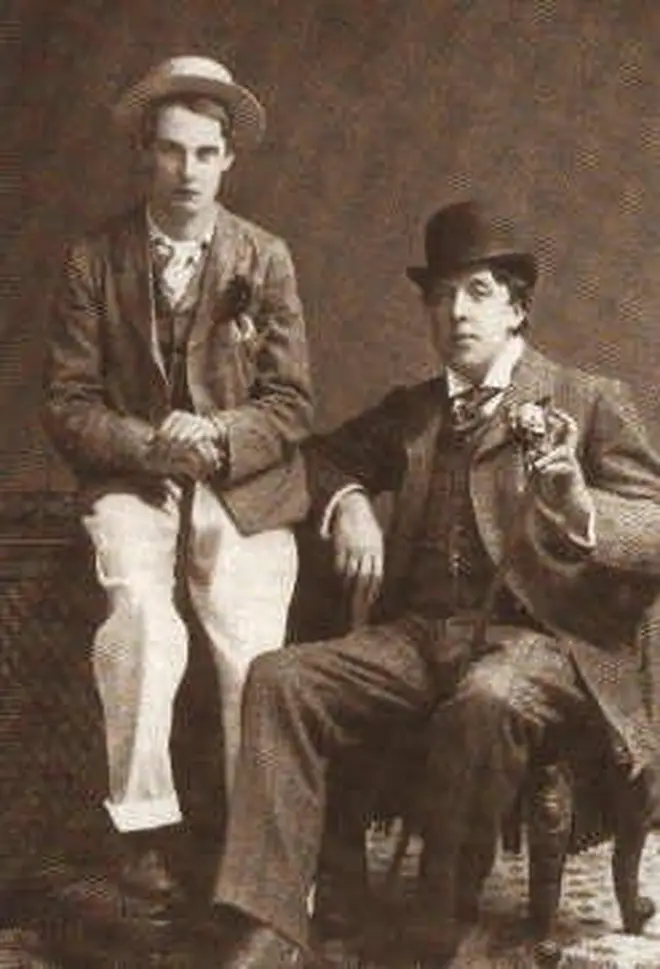Was Oscar Wilde gay, when did the Dorian Gray author die and where was he buried?
19 April 2019, 18:08 | Updated: 4 May 2019, 12:13

Oscar Wilde was one of the most popular playwrights in the early 1890s – we detail everything you need to know from his famous works to his untimely death
As The Importance of Being Oscar 120-minute documentary airs on BBC2 this Saturday at 9pm, we take a look at the man who once remarked: "There’s only one thing in the world worse than being talked about, and that’s not being talked about."
Who was Oscar Wilde?
“I have nothing to declare except my genius.” Such were the famous words uttered by Oscar Fingal O’Flahertie Wills Wilde, poet and playwright, upon disembarking at New York.
Wild’s biting wit and conversational mastery helped him to make a significant name for himself in London, where he lived in the late 19th century. And that fame continues to this day, not just in the celebration of famous works such as The Importance of Being Earnest and The Picture of Dorian Gray, but also through his large opus of sayings, which are fondly and often quoted to this day.
While Wilde the socialite and writer are well known in the modern day, what is less understood is his private life, which was to ultimately lead to his downfall and his death.
Was Oscar Wilde gay?
Although he had already built up a significant reputation in the Victorian era for being a raconteur and bon vivant, it was during an ill-conceived trial against the Marquess of Queensberry that the real secrets of Wilde’s life were brought out into the light.
Having been accused of being a “posed sodomite”, Wilde decided to sue Queensberry for libel – and so Queensberry’s defence was to prove to the public that Oscar Wilde was indeed a gay man, to which end he announced his intention of bringing several male rent boys to testify that they had had sex with Wilde.
With no choice but to drop his libel case, Wilde was subsequently arrested on the charge of “gross indecency”. Unfortunately for Wilde, his usual winning wit proved to be his downfall, with his responses being seen to undermine his credibility and simply underline is homosexuality. He was convicted on 25 May 1895, and sentenced to two years’ hard labour.
When did the Dorian Gray author die?
Upon his release from prison, Wilde was impoverished and in poor health. Unwilling to return to London, he lived out his remaining years in self-imposed exile in France, with his last known address being a dilapidated hotel in the Saint Germain district of Paris.
By the turn of the century, Wilde knew his last days were upon him, eventually dying of meningitis on 30 November 1900, with several theories as to the causes. Having been originally buried in the Cimitière de Bagneux outside Paris, his body was moved in 1909 inside the city, to the Père Lachaise Cemetery where he still rests to this day, interred in a tomb designed by Sir Jacob Epstein.
Where was he buried?
To this day, the monument attracts countless visitors who wish to pay their respects to this enigmatic man; so much so that a glass barrier had to be installed to prevent the damage from constant lipstick marks left by admirers. In 2017, Wilde was one of 50,000 men who under the so-called ‘Alan Turing law’ were given a posthumous pardon for their conviction.
About the programme
The docudrama The Importance of Being Oscar covers everything you need to know about Oscar Wilde. It takes viewers through his career before his trial, with excerpts from his work performed by actors, alongside biographical details recounted by experts and fans, including Stephen Fry. It showcases that there was so much more to the man than the notoriety and scandal that shamed him in court.
The Importance of Being Oscar airs this Saturday on BBC2 at 9pm


































